So I’ve just rewatched The Last Jedi for the fifth time now. And I want to talk about why it may be… time for the (Last) Jedi (hate)… to end.
And why this film flourishes emotionally and viscerally, even as it collapses logically and critically. I wish I could outright hate this movie or outright love it – as it is, however, I’m in the frustrating position of both hating and loving it at the same time – and I really can’t figure out how I’ll feel about it five years or ten years from now.
In this ‘re-evaluation’ or essay or whatever you want to call it, I want to reappraise my views on The Last Jedi, see what’s changed over time, and essentially conduct something of a defense of this movie – even though I could write another equally valid piece on everything that’s wrong with this movie.
This is motivated in part by how bored I am with all the ongoing hate for The Last Jedi – some of which is valid, and much of which has been excessive. But it is also motivated by how much the film has improved for me in these nine months. I also want to talk about how the Five Stages of Grief relate to my/our response to this movie and I also want to talk about The Last Jedi in the context of The Phantom Menace.
I have to say, it’s a film that seems to get better and better the more I watch it. It’s a film that grows over time – not a film that necessarily enamours you on first viewing.
I certainly wasn’t enamoured with The Last Jedi back in December: but to be clear, I never totally hated it. My initial review of the film was balanced between praise for the film’s significant strengths and pleasures – and dismay at some of the storytelling choices, character portrayals and frankly bad structuring.
My sense of the film now is still generally the same: I love lots of it, I definitely have an emotional response and engagement in key scenes, and I adore the cinematography and the visual tone and dynamics of this movie. But I still dislike some of the story choices, am still baffled by some of the lapses in logic, and I still question – as I always have – whether these sequel films needed to exist at all.
But what I can’t deny is that every time I watch this film, I am compelled, I am engaged, I am emotionally captured, and I am ultimately unable to hate or dismiss Rian Johnson‘s much-derided chapter in the Star Wars saga.
Any film that can be so emotionally affecting (the Luke/Leia scene, the Luke/Yoda scene, the twin suns at the end, etc), so dramatically stunning (Kylo’s killing of Snoke and team-up with Rey), so genuinely cute (the Porgs, the Ach-To caretakers, etc), so visually stunning (the Throne Room sequence, Crait, all of the Ach-To sequences), so thematically significant to the whole saga (Luke’s conversation with Rey about the Jedi Order), so bold and daring (Luke’s ending and the Force Projection or Leia’s massive reveal of Force Powers)… is NOT a film you can just outright dismiss or toss aside.
I wish it WAS. Because if it was a total piece of garbage, I could just toss it out and never think about it again.
It is a flawed film? Oh GOD, YES, it’s flawed as hell. I’m still bemused by the continuity lapses all over the place, the lapses in logic, and all the rest of it. I also still think Canto Bight was totally pointless, and that Finn, BB8, Phasma, DJ, were all utterly useless characters that were just there to fill out screen time.
And the story takes too many short-cuts that seek to artificially make the story work – such as the Falcon dropping Rey off at Snoke’s ship without problems, Rey escaping Snoke’s ship without problems, Finn and Rose arriving on the Crait base without being intercepted by the First Order, the First Order somehow declining to attack the rebel base on Crait, Holdo hyperspacing into Snoke’s ship and yet every significant character on that ship somehow surviving… and on and on it goes.
In terms of continuity and logic, this is the worst plotted Star Wars film by far. Which, to my mind, demonstrates why George Lucas should’ve been retained as a story consultant.
The problem for me is that, even though all of that stuff still bugs me, I just cannot dismiss the film as a whole – on an emotional level, on a thematic level, on the mythology level, and on a sheer level of cinematography.
It’s such an interesting cinematic experience, so layered and so nuanced. It is so beautiful in places, so visceral and compelling in others, poignant in others, tedious in yet others – and yes, stupid as hell in others.
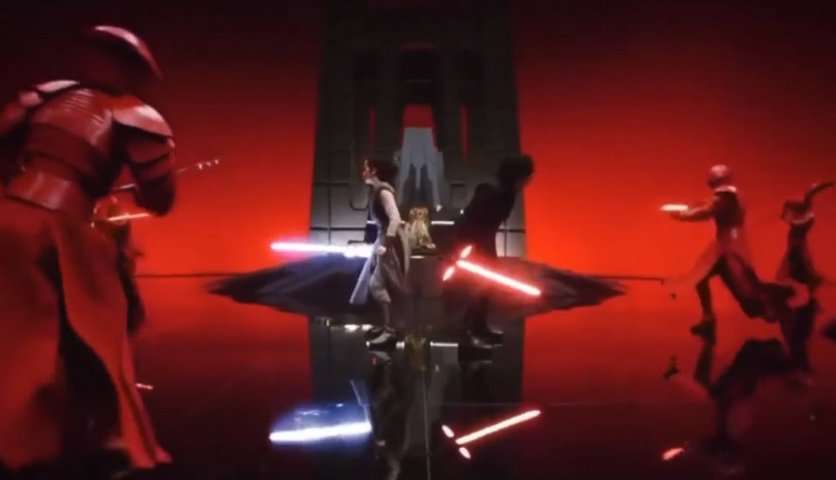
It helps, however, that a lot of the things other people hated right-off-the-bat were not things I had any problem with: I was never bothered by Luke tossing the lightsaber over his shoulder, never bothered by all the jokes, never bothered by Snoke being killed off, never thought Rey was a ‘Mary Sue’, never overly hated Rose Tyco, and was never that opposed to the now-infamous Leia ‘Mary Poppins’ scene (I actually love that scene – as I argued here).
What I really had struggled with was the Luke Skywalker ending – and I will come back to that at the end here. Other than that (and a few smaller things, which were all highlighted in the original review), the main problems I had with TLJ were actually broader problems stemming from this sequel trilogy existing at all. Such as the fact that everything has simply gone full circle, everything is simply repeating itself, and the fact that the Luke, Han and Leia of this sequel trilogy are such depressing, sad, broken characters.
Even with all of that kept in mind, however, J.J Abrams and then Rian Johnson were both able to create interesting movies, with great, poignant or enjoyable things in them. It is neither Abrams’ nor Johnson’s fault that Lucas sold Star Wars to Disney or that Disney/Lucasfilm commissioned a new trilogy set three decades after Return of the Jedi – they both had to work within the storytelling parameters set by those decisions.
My view is that there WAS NO great saga to be told by bringing us back to an elderly, bitter and lost Luke, Han and Leia – at least not one that could please all of the fans while also not being a cliched re-run of the Original Trilogy. In terms of TLJ, Rian Johnson inherited both that broader problem *and* problems from the decisions Abrams made in TFA – such as, for example, the fact that there now could never be a Luke, Han and Leia reunion.
I’ve heard someone saying that The Last Jedi might in the future be looked back at in the same way we look back now at Empire Strikes Back. I don’t think that will ever happen (first because it is too divisive already and, second, because it is too flawed).
Actually, what TLJ reminds me most of is The Phantom Menace. And I love The Phantom Menace – but there’s a lot in TPM that I never did like and I wish had been done differently.

That’s how I feel about TLJ too.
I have always seen The Phantom Menace as an epic masterpiece – that didn’t fully or properly BECOME that epic masterpiece it so nearly was.
That’s how I feel about TLJ too.
The Phantom Menace shot itself in the foot too many times. So does TLJ.
In both cases, you can see, taste, feel, the underlying masterpiece – but in both cases, it just never fully, properly comes together as a whole, even if the brilliance is there in various places.
In both cases, you have some of the hands-down best sequences in the whole franchise (the Duel of the Fates or the podrace in TPM, for example, or the Rey/Kylo/Snoke Throne Room sequence in TLJ), and yet also some of the worst things in the franchise (the Gungans and the Neimodians, for example, or the Finn/Phasma ‘showdown’).
But I’ve always loved The Phantom Menace perhaps just as much for what it was trying to be as for what it actually was: and I can feel myself now being the same way with The Last Jedi.
The more I’ve watched it, the more I’ve pinpointed precisely what I think undermines this film so much. It is schizophrenic.
Every time it has a brilliant moment, it also has a stupid one. Every time it is on the brink of something sublime, it also does something tedious or unnecessary. Every time I find myself wondering why people dislike it so much, I get a fresh reminder of precisely why a few minutes later.
There’s a weird tension, a weird push-and-pull going on throughout the film between the profound or even beautiful and the lazy or stupid.
It’s also as if Rian Johnson keeps trying to be sarcastic with the story every time he has just been profound or meaningful. This jarring tonal duality in TLJ reminds me very much of something Kurt Cobain once said about Nirvana lyrics: Cobain said he always struggled to write entirely earnest or sincere lyrics, because every time he wrote a meaningful or sincere line, he couldn’t stop himself following it up with a sarcastic line that almost seemed to ridicule the previous line.
The Last Jedi feels like that much of the time. It is very tonally uneven and feels generally imbalanced.
It is some great dialogue, and some terrible dialogue. It has some profound or sublime moments and then a bunch of dumb, unnecessary moments. It has fascinating ideas (the Reylo Force-connections, the killing of Snoke, Rey wielding Kylo’s saber, Luke’s finale), and then incredibly tedious ideas. It has some genius, suspenseful storytelling (Kylo’s turning on Snoke, Kylo’s indecision about killing his mother, the Rey/Kylo tension, the sleight-of-hand regarding Luke’s finale, etc), and yet it also has the most amatuerish plotting in any Star Wars film (all of the aforemenmtioned lapses in continuity and logic), it has new directions and ideas (Force Projection, Hyperspace as a weapon, etc) and yet also falls back on cliches (being back to ‘Rebels’ at the end, for example).
I want to love it (and do) so often: and then, almost immediately, I want to hate it. It’s bloody confusing. It’s almost like a lover you can’t figure out whether to break up with or marry.
In my original review, I literally titled the article ‘An Honest, Balanced Review of an Epic Mess’: and ‘epic mess’ is what it still is. Awkward, uncomfortable, confusing, terrible, and brilliant.
So what am I actually saying here? That it’s a great film? A terrible film? No, it’s neither.
What I realise though is that when I approach TLJ logically and clinically, it comes off as a very bad film. But when I approach it emotionally and mythologically, it fares a great deal better. It’s as if Johnson has crafted out a story that (1) falls apart when you try to analyse it critically, but (2) is capable of bypassing that problem and speaking in a more visceral, emotional, mythological level at which it thrives and succeeds.
And I guess it’s worth saying that, at it’s best, Star Wars has always been emotional, visceral and mythological. Does that mean I think TLJ should get a total pass? No. This movie definitely needed a rewrite and re-edit. But it’s core ideas, themes, and its heart, are epic storytelling that represents everything Star Wars should be.

It’s just so frustrating that it shoots itself in the foot so many times.
But, as with The Phantom Menace, when a film is both so flawed and misjudged in places and then so brilliant and so well-executed in other places, it comes down to a question of whether the positives outweight the negatives or whether the negatives prevail.
As with The Phantom Menace, I think the positives in The Last Jedi are strong enough – just about – to make the negatives tolerable (just about). In other words, I realise I’m probably willing to take the crap in order to also enjoy the quality: if there was no quality, and it was all crap, it would be a different matter.
I will say, however, that the franchise can’t take another wobble like this one. If Episode 9 ends up being as imbalanced and divisive as TLJ was, I think there’s no going back.
But some key things that have changed upon multiple viewings?
Firstly, I don’t hate the Holdo character anymore. I don’t particularly love her either. But I’m not as aggravated by her as I was the first time. I get what the point of this was – which I didn’t get the first time. I actually now really like what Laura Dern brings to that character; and I get how the whole thing is another of the film’s misdirects, fooling you into thinking Holdo is the suspicious character when really Poe is the one who’s behavior is highly questionable.
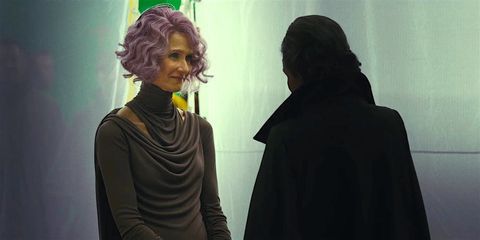
Secondly, I actually find the Rose character (Kelly Marie Tran) more enjoyable. I don’t think she was written well. Her theme tune is the worst, most annoying piece of cheesy nonsense in any Star Wars film. And her action at the end – to ‘save’ Finn – is still stupid and irritating. But, more and more, I like how Kelly Marie Tran plays the character and I get the general vibe of what this character is supposed to be. I think maybe Rose could be a better character in the next film.
Thirdly, I like Rey a lot more after multiple viewings. Now I loved Rey in TFA – I never struggled that much with the Mary Sue thing. I loved the way the character was introduced, I loved Daisy Ridley’s performance, and in general I thought that Rey in TFA was iconically and quintessentially Star Wars.
When we got to The Last Jedi, my reaction to Rey was a lot less positive on first viewing. I thought she didn’t really get any development at all. I thought she literally was a Mary Sue this time. And I didn’t like how it felt like Kennedy and co were going out of their way to portray Rey as morally and culturally superior to Luke – as if the whole thing was a statement about the new, modern heroine being somehow superior to the tired, old archetype of Luke Skywalker.
On subsequent viewings, I think I was misreading a lot of this, based in part on my reading of some of the rest of the film. It didn’t help that Kathleen Kennedy is always going on about stuffing her social-messaging into Star Wars.
But, actually, while I still think Rey is less engaging in TLJ than she was in TFA, I think she’s still a good character and is actually more sympathetic in TLJ the more you watch it. Her journey with Kylo is genuinely compelling, her interactions with Luke are really nuanced and layered, and – apart from one or two things, which are mostly to do with the plot and not with the characterisation – Rey in TLJ is basically just a continuation of Rey in TFA, albeit with less growth than we might’ve expected.
And even if Rey is less interesting in this film than she was in the first one, it isn’t Rey herself but the Rey/Kylo dynamic that is much more potent and engaging this time. The Rey/Kylo thing is essentially the center of this movie – and it is compelling throughout.
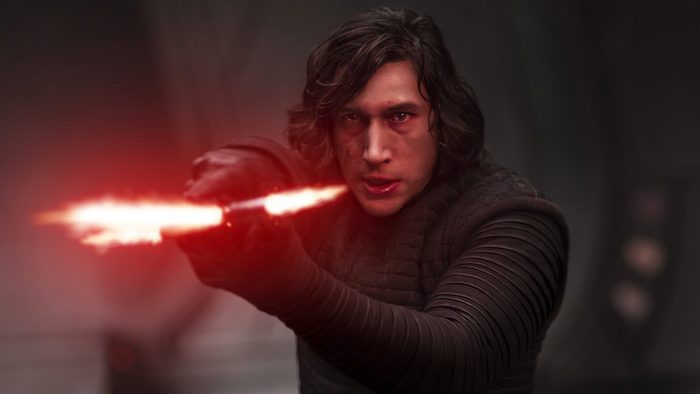
Again, I would argue that the Rey/Kylo/Snoke showdown in the Throne Room is probably one of the greatest sequences in all of Star Wars. In a few years, I suspect I could even count it among my all-time top ten Star Wars scenes/sequences.
Fourthly, and this is the most important of all, I don’t hate the treatment of Luke Skywalker anymore. I have come to terms with the Luke Skywalker of The Last Jedi.
The first time I saw it in the cinema, so much of my response was knee-jerk emotional: I was dismayed by Luke’s death and how little it seemed to count for anything.
Part of me still feels that way. But a lot of this stems from broader problems with both TFA and TLJ – to do with the lack of explanation for the state of the galaxy, the rise of the First Order, the origins of Snoke, the failures of the New Republic, etc. One of the biggest problems with this sequel trilogy is its remarkable vagueness about key background issues – which, again, is why George Lucas should’ve been retained as a story consultant.
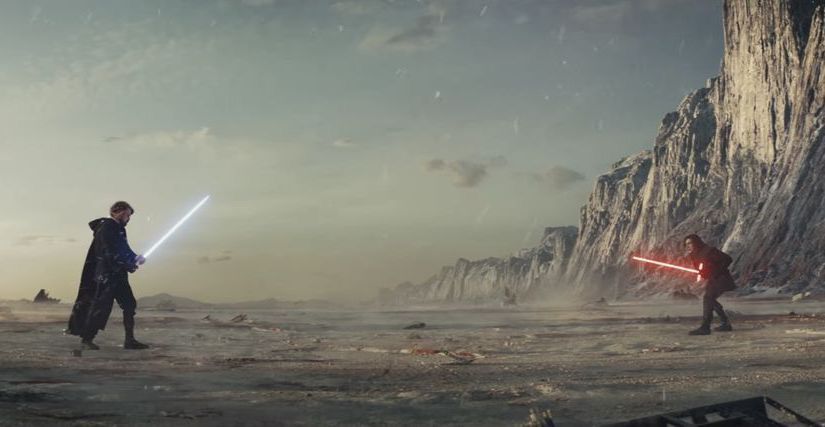
What’s jarring about all of TLJ – including the climaxe – is the push-and-pull between cinematic greatness and cinematic stupidity. Luke’s finale is epic and fascinating: but it is coupled with a lackluster and annoying ‘Rebels’ vs ‘Empire’ finale (an open reversion to not just the dynamics but the terminology of the Original Trilogy), which serves to blunt the effect somewhat.
Nine months later, the emotional side of it has evolved or mutated, as it was evnetually bound to: because I’ve gotten passed thinking about what I wanted Luke Skywalker to be and am able to deal with the Luke Skywalker we’ve been given.
I think my reaction to The Last Jedi – and particularly Luke – was, as it was with a lot of fans, something along the lines of the Five Stages of Grief: 1. Denial and isolation; 2. Anger; 3. Bargaining; 4. Depression; 5. Acceptance.
I definitely went through the Denial. And the Anger. I might’ve skipped the Bargaining somewhat. Depression, yes. And finally acceptance.
Essentially, you have to get rid of your perceptions of what you thought this film was going to be or what it should’ve been: and you have to contend with the film that exists. And once you accept that, you can begin to appreciate The Last Jedi on its own terms.
That is essentially what we should always do anyway – we have to be able to separate what we expected or wanted from what actually exists. You can’t judge any work of art based on what you wanted or expected it to be – it’s the same mistake so many people made with the prequels.
The key thing again that’s changed is that I no longer think about what I wanted Luke to be: by about the third viewing, I’m now simply processing what Luke’s story *is* in The Last Jedi.
And the Luke Skywalker of The Last Jedi – as frail, weak and flawed as he is – is probably my favorite characterisation of Luke Skywalker apart from in Return of the Jedi. ROTJ is my favorite Luke for all time: but the TLJ Luke is something far more challenging, interesting, layered, and compelling than the more obvious, cliched route that might’ve been the alternative.
The Luke Skywalker of TLJ is human. So human: not an archetype, a paragon or a cliche.
Do I agree with every aspect of the characterisation of Luke in this film? No. Is it the Luke I would’ve written? No. But you cannot deny that it is compelling and interesting, and often oh-so-poignant. You cannot watch Luke’s scene with Artoo, or his scene with Leia or with Yoda, or that image of him staring into the twin suns, and dismiss this story as a betrayal or dismissal of what Luke Skywalker is supposed to be.

And most key of all is that Luke does get the hero ending: just in a different form to what we expected.
But that’s the cleverness of the writing. That Luke-centered finale is actually superb: dramatically, thematically, visually, musically, emotionally – everything. Is it the Luke Skywalker ending I would’ve wanted if The Last Jedi didn’t exist yet?
No, probably not. But, in its own right, it is stunning, fascinating and rich with resonance and mythology.
The more I watch that sequence, the more I watch that finale, the more I realise that Johnson actually gave us a genius climaxe – one that both served to be shocking and unexpected at the time and also richly resonant in the longer-term.
I still firmly believe that there should’ve been no Sequel Trilogy at all. But, given that there is one, we either have to ignore it or try to enjoy on its own terms.
And, for someone who didn’t want a new trilogy, it’s worth saying that there is so much I genuinely do enjoy and embrace in both The Force Awakens and The Last Jedi – even if I also have my qualms with both.
The hatred bandwagon against The Last Jedi is not something I ever wanted to be part of: partly because it goes too far, partly because I remember how irritated I always was by all the prequel-bashing, and partly because I just don’t hate The Last Jedi that much.
I’ll never love it in its entirety either – as I said, it’s a very flawed, botched film that hits too many wrong notes, even as it’s hitting so many right notes.
But there’s so much good in it at its heart that it’s impossible for me to feel the hate. But then I’m someone who has always loved The Phantom Menace – so what do I know?
Rian Johnson inherited a situation where he could either do all of the obvious things, tick all the boxes and play it by numbers: or he could try to take risks, do new and interesting things and try to say something new, adding a new twist to a mythology and formula that we otherwise know so well.
With The Force Awakens having already been perceived as a generally by-the-numbers tribute act to the Original Trilogy, Johnson simply couldn’t follow the same formula that J.J Abrams did.

Did he perhaps overdo it in places? Yes, definitely. But he had to do something different with the story and with the franchise. He had to subvert expectations (the way Empire Strikes Back did) and he had to find a way to say something new about these characters, this mythology and this universe. When you’re eight films into a ‘saga’, you can’t keep recycling the same formula.
And what Johnson’s story does effectively is add new perspectives and nuances to the established mythology. We get new manifestations of the Force. We get a reappraisal of the broader story in previous films, primarily via Luke’s conversations with Rey and Yoda. We get the unexpected, twists and turns, and yes, we get cliches and dead-ends too.
Like I keep saying, it is very far from perfect. But art isn’t always perfect – indeed, art isn’t even meant to be perfect. So much of the best art is about interpretation.
What Rian Johnson has done is to shake up Star Wars and create different possibilities and perspectives. And crucially – as I said in my original review back in December – his film has given us something to debate about, argue over and reinterpret for a long time: which, in itself, is something significant, as opposed to a film that is simply done-and-dusted and put away.
A lot also depends on what J.J Abrams does with Episode 9, of course. But I’ve seen The Last Jedi five times now, over a period of about nine months – and it genuinely does feel better and better to me the more I watch it. I think it is actually pretty profound in places.
What I or we will be saying about it ten or twenty years from now, I’ve no idea. By that time, there will probably have been so many more Star Wars films – including whole new trilogies – that it just won’t matter or register anymore anyway.
I’ve said before – and I said it at the end of my original Last Jedi review – that I have considered keeping Return of the Jedi and Revenge of the Sith as the combined ‘end-point’ of the Star Wars saga in my personal canon: and treating all subsequent films beyond ROTJ as some sort of optional alternate timeline.
Whether I ultimately do that or not depends on what Episode 9 turns out like – but I actually like both TFA and TLJ enough still at this point that I kind of hope Episode 9 does enough to retain this whole sequel trilogy as ‘canon’ for me.
It is already too late for this trilogy to be perfect or immaculate – but The Last Jedi is already seeming a lot better to me after nine months than it did in December, and so it is possible Episode 9 could actually elevate TLJ even more – and ultimately elevate this whole trilogy.
It all remains to be seen yet. I’ve no doubt whatsoever that I, we and the Star Wars community as a whole, will be discussing, debating and reinterpreting The Last Jedi for a very long time.
Read my original review of ‘The Last Jedi‘ here.

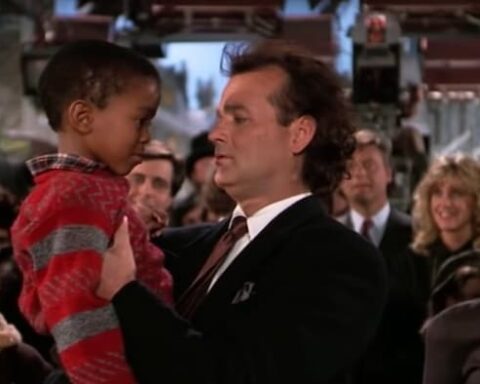
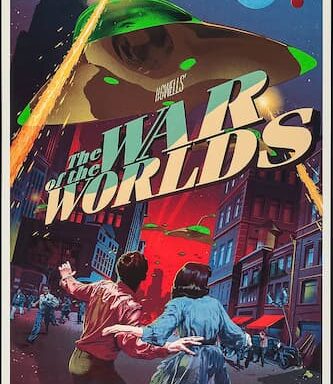
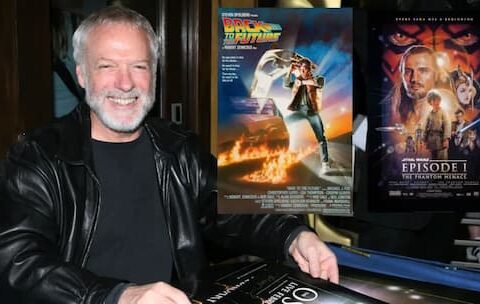
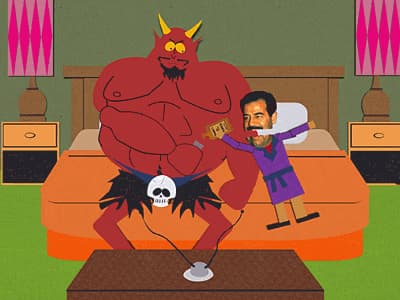
Even in the silence, he speaks… we do, amen.
I Am A great fan of your writings, please go on. . .
👍
On Mon, 31 Dec 2018, 22:51 the burning blogger of bedlam, wrote:
> The Burning Blogger Of Bedlam posted: “This is a test post.” >